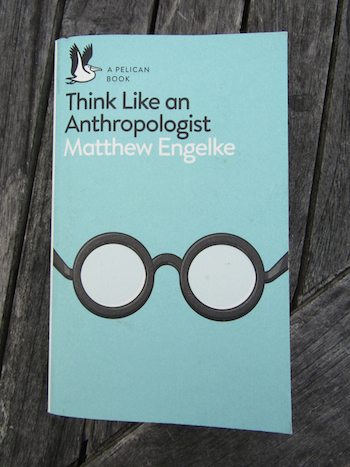Book Review - Think Like an Anthropologist
I requested this book, Think Like an Anthropologist by Matthew Engelke, for Christmas, but once I started working from home in lockdown my reading time got severely reduced due to a lack of commute time, meaning I have only just gotten around to reading it.
Now I cannot say I understood every single word of it, being as it is written by a Professor of Anthropology from the London School of Economics, but I actually found it a very accessible and interesting read.

While you might think of anthropology as going and living with the natives of some far off country for years at a time to learn all about them, Matthew makes it clear you do not have to go that far to still be doing anthropology.
His example; Caitlin Zaloom who spent six months working as a runner at the Chicago Board of Trade before spending time in London to learn about future trading.
The book is full of examples of research that has happened around the globe over the last couple of hundred years. I would have loved to have heard more about many of these groups, but it would have made the book an even longer read.
He split the book up by culture, civilisation, values, value, blood, identity, authority, reason and nature, all key components for anthropologists to be aware of, being so important to humans of all kinds as they are.
While I might not be doing full on ethnographic research this was still a really great reminder of how different people can view the same thing differently, even when we live together in the same society.
It reminds me that when I do my research I have to be careful not to layer my understanding of the world over my participants, as they could be quite different depending on the different context of where we both grew up.
But at the same time this book showed me that underneath it all we are not so different, although we might show it in different ways. For instance what is the difference really between saying someone is unlucky or that they were affected by witch craft?
I really enjoy this book and think anyone who is interested in humans, and why we act as we do, will find this fascinating too. And if you are actually studying humans and their behaviour this would be a good place to start your thinking.
